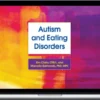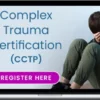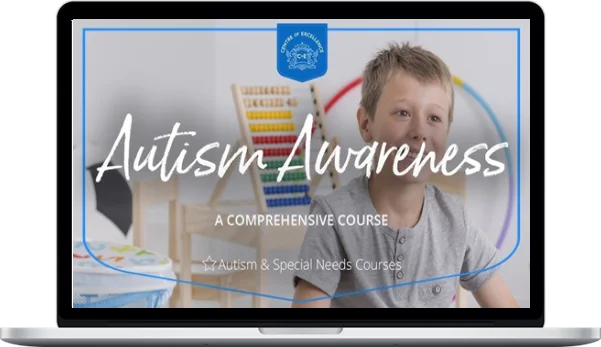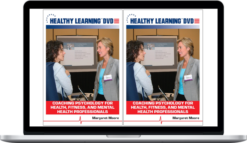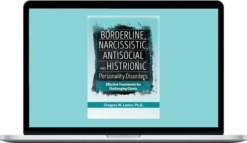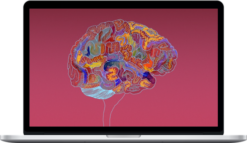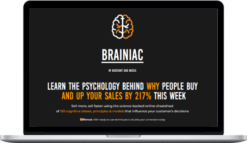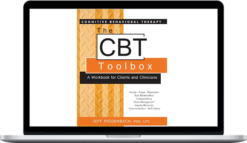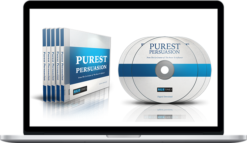Centre Of Excellence – Autism Awareness Diploma Course
$177.00 $33.00
»Delivery: Within 24hs
Description
Centre Of Excellence – Autism Awareness Diploma Course
What You’ll Learn In Autism Awareness Diploma Course?
This comprehensive best selling Autism Awareness Course, written and developed by a leading authority on Autism, will teach you everything that you need to know about Autism, what it is, how to spot the signs and symptoms, diagnosing Autism, the gender differences in Autism, treatments, therapies, interventions and strategies, how to make reasonable adjustments, adults and children with Autism and inclusion.
Autism and it is estimated to affect one in every hundred people in the UK, although in the US their current estimate is one in every sixty-eight people. Autism is a neurological condition which means that the Autistic Brain is organised in a different way. There is no cure, and it affects the way someone with Autism sees, perceives and processes the world around them. The impact of Autism is individual – every person with the condition will have a different set of symptoms and difficulties. However, common to all with Autism are poorer social skills affecting how they communicate and interact with others.
Autism is a Spectrum Disorder, meaning that every child with the condition is likely to present with different symptoms, different challenges, and a varying level of severity
Certain disabilities increase the risk of also being diagnosed with Autism.
Once an Autism Diagnosis is made, there are several other neurological conditions which may also be present. To be diagnosed with Autism, a person must meet The Triad of Impairment criteria, and be seen to have difficulties with all three of the following – communication, imagination and interaction. The rates of Autism Diagnoses has risen very steeply in recent decade, leading many to believe that there is an epidemic. The more likely reason for this increase is due to better diagnostic criteria and better awareness of the condition.
Course Syllabus
What will I learn on the course?
Module 1 – What is Autism Spectrum Disorder?
- Introduction
- Part 1: What is Autism?
- Part 2: Disabilities & Co-morbidities
- Part 3: The Triad of Impairments
- Part 4: History of Autism
- Part 5: The Apparent Autism Epidemic
- Test Your Knowledge
- Key Learning Points Exercise
- Module 1 Assessment
Module 2 – The Triad of Impairments
- Part 1: Communication Impairments
- Part 2: Social Interaction Impairments
- Part 3: Impairment of Imagination
- Part 4: Autism and Emotions
- Part 5: Adults with Autism
- Test Your Knowledge
- Key Learning Points Exercise
- Module 2 Assessment
Module 3 – Common Symptoms of Autism
- Part 1: Sensory Issues
- Part 2: Signs of Sensory Issues
- Part 3: Food Issues
- Part 4: Repetitive Behaviours, Obsessions, Anxiety and Rituals
- Part 5: Meltdowns & Tantrums
- Part 6: Meltdowns – Anger and Aggression
- Part 7: Meltdown Calming Strategies & Prevention
- Test Your Knowledge
- Key Learning Points Exercise
- Module 3 Assessment
Module 4 – Diagnosing Autism
- Part 1: Diagnosis in Children
- Part 2: The Diagnostic Assessment Process
- Part 3: Diagnostic Report
- Part 4: Diagnosis Procedures for Adults
- Test Your Knowledge
- Key Learning Points Exercise
- Module 4 Assessment
Module 5 – Gender Differences
- Part 1: Autistic Boy to Girl Ratio
- Part 2: Female Friendship Patterns in Primary School
- Part 3: Female Autistic Behaviours
- Part 4: Male Centric Bias of Diagnostic Tools
- Part 5: ASD Girls and High School
- Part 6: Male / Female Vocal Tone Differences
- Test Your Knowledge
- Key Learning Points Exercise
- Module 5 Assessment
Module 6 – Autism Treatments, Therapies, Interventions & Strategies
- Part 1: Therapies & Intensive Programmes
- Part 2: Types of Therapy
- Part 3: Specific Non Therapeutic Interventions and Strategies
- Part 4: Early Intervention
- Test Your Knowledge
- Key Learning Points Exercise
- Module 6 Assessment
Module 7 – Making Reasonable Adjustments
- Part 1: Equality Act of 2010
- Part 2: Reasonable Adjustments
- Test Your Knowledge
- Key Learning Points Exercise
- Module 7 Assessment
Module 8 – Autism in Adults
- Part 1: Adults with Autism
- Part 2: Common Adult Autism Symptoms
- Diagnosis in Adulthood
- Test Your Knowledge
- Key Learning Points Exercise
- Module 8 Assessment
Module 9 – Inclusion
- Part 1: Inclusion in Education
- Part 2: The Medical and Social Models of Disability
- Part 3: Achieving Inclusion
- Part 4: 10 Strengths That People With Autism Add To Society
- Test Your Knowledge
- Key Learning Points Exercise
- Conclusion
- Module 9 Assessment
Who Would Benefit from This Course?
Written by a leading authority on Autism, this comprehensive and powerful course aims to provide a better awareness of the term “autism” and “autistic spectrum disorder” (ASD), it teaches how to best support individuals with autism and equips parents, care givers and teachers with the skills and knowledge needed to help as many people as possible.
This course, and the level 4 Advanced Autism Awareness Course, would be beneficial to anyone looking to understand more about Autism, parents, caregivers and teachers.
About Centre of excellence
Here at Centre of Excellence we are supremely proud to be at the heart of a vibrant community of hard-working students. The determination and enthusiasm of our students never ceases to impress us and there is nothing better than seeing our graduates go on to succeed in further education, work, business or just life in general!
More courses from the same author: Centre of Excellence
Delivery Policy
When will I receive my course?
You will receive a link to download your course immediately or within 1 to 21 days. It depends on the product you buy, so please read the short description of the product carefully before making a purchase.
How is my course delivered?
We share courses through Google Drive, so once your order is complete, you'll receive an invitation to view the course in your email.
To avoid any delay in delivery, please provide a Google mail and enter your email address correctly in the Checkout Page.
In case you submit a wrong email address, please contact us to resend the course to the correct email.
How do I check status of my order?
Please log in to HealthcareCourse account then go to Order Page. You will find all your orders includes number, date, status and total price.
If the status is Processing: Your course is being uploaded. Please be patient and wait for us to complete your order. If your order has multiple courses and one of them has not been updated with the download link, the status of the order is also Processing.
If the status is Completed: Your course is ready for immediate download. Click "VIEW" to view details and download the course.
Where can I find my course?
Once your order is complete, a link to download the course will automatically be sent to your email.
You can also get the download link by logging into your HealthcareCourse account then going to Downloads Page.
Related products
Total sold: 4
Total sold: 4
Total sold: 1
Total sold: 2
